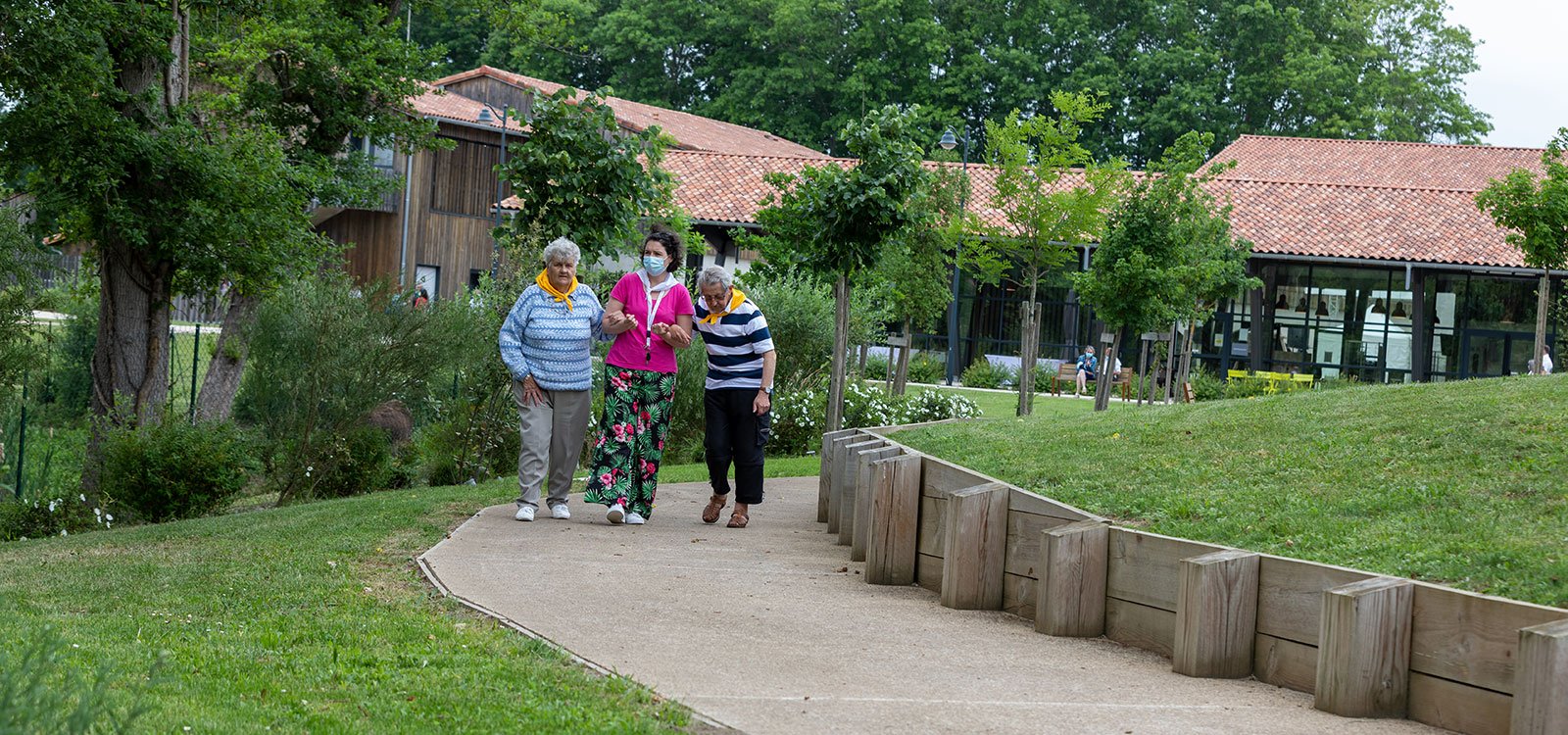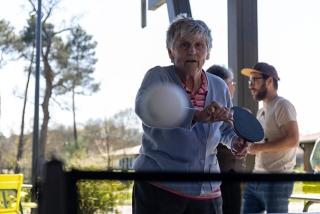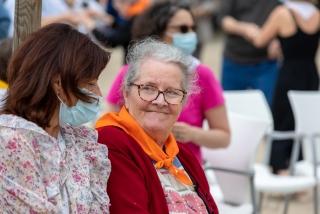Two years after the opening of the Village, the professionals, some of whom have changed their lives to join the Dacquoise adventure, remain convinced of the relevance of its support model, like Véronique Luciani: "we have different levels of studies and experiences but we all speak the same language. We have this common desire to change things."
A collective membership that Saïd Acef, newly appointed director of the Public Interest Group (GIP) Village Landais Alzheimer, intends to maintain: “we are on an experiment that has been running for 2 years, in a context of health crisis. We must once again salute the way in which the village teams have taken up this daily challenge of accompanying, caring for and reassuring the people received. We have now left for another 5 years thanks to a contract between the ARS, the Departmental Council, the GIP and the establishment. Funding is permanent, with long-term credits. The operation of the Village must be simplified from an administrative and legal point of view, in order to secure the presence and commitment of staff and volunteers. While now succeeding in bringing the experiment to life, particularly in terms of opening up the village to its environment. The challenge is to bring together all the conditions for the spirit and the letter of the project to persist and develop over time”.
The contribution of volunteers
If the Covid crisis led to a late inauguration, it also slowed down the integration of volunteers, which began in July 2020 but has only been effective since June 2021. In support of professionals, they contribute to maintaining life social. “They welcome the villagers to the brewery, the grocery store, the media library. Their role is to help to spend pleasant moments through small parties, walks, games. Some offer activities that the villagers go to, depending on their interests: conference on astronomy, knitting group, storytelling, singing…”, describes Florence Laudouar, volunteer and animation coordinator. A total of 180 people attended the information and awareness day for volunteers and 65 of them come very regularly.
This external contribution is added to the creative, sports and cognitive workshops led by the VLHE facilitators. Not to mention the little unforeseen moments of sharing: “If there is a part of Uno that is improvised in the Bas-Armagnac district, I can participate even if I live in the Chalosse district. There are many interactions between them. Human relations are spontaneous and sincere, social norms are not imposed,” enthuses Pascale Lasserre-Sergent.
Research: too early for an assessment
It remains to be determined whether this benevolent support has a positive and objective impact on the advancement of Alzheimer's disease. It is one of the objects of the research component of the Dacquoise experiment, led by Hélène Amieva, professor at the University of Bordeaux and director of an Inserm team. Evaluation interviews take place every 6 months with the 120 villagers, but also with families and staff.
While recalling beforehand that a scientist "cannot be based on impressions and must wait for the objective analysis of the results", the specialist in psycho-gerontology agrees to deliver her first observations: "it seems to me that this place plays a role of social link by promoting interactions between the villagers and all other people. Despite a disease that is often characterized by a tendency to isolation, people maintain an appropriate social behavior. However, we will only be able to draw an initial assessment after 3 years.
While waiting for these results, the VLHE research team has already completed a study on the impact of the Village on the representation of Alzheimer's disease in the general public. A telephone survey was conducted in Dax and the surrounding area as well as in Villeneuve-sur-Lot (a town with the same socio-economic characteristics as the Landes sub-prefecture), before and after the opening of the Village. “At the level of the responses from the Landes, we observe a positive evolution in the view of Alzheimer's disease, with less disgust reported after the launch of the project. This is not the case in Lot-et-Garonne. Similarly, to another question on the characteristics of the disease, the notion of loss of identity is less mentioned in Dax after the opening. The hypothesis is therefore that the media coverage of the VLHE has contributed to conveying a less frightening representation”, summarizes Professor Amieva.
How to open outward?
In the beginnings of the project, the Village was designed as a district of Dax, open to the city. The Covid decided otherwise, forcing the establishment to live in a bubble protected from the outside. After 2 years, it becomes an issue. Pascale Lasserre-Sergent expresses the wish that professionals from other structures visit the Dacquois site, in order "to observe a different type of support, where the freedom to come and go is a fundamental dimension, being aware that the site is a tool for work that allows it”. Doctor Marie-Bailleul suggests a measured and progressive opening: "I imagine it happening at chosen times, through intergenerational or cultural projects".
It is on this path that Saïd Acef intends to commit the structure: "from the fall of 2022, we will build with local partners a first dynamic of the cultural season and make the media library, the auditorium but also bastide, places where the inhabitants of the Village can have contact with the outside world and where visitors can also come and share scheduled times. And this in a way that is accompanied and adapted to respect the quality of life of the villagers”.
To observe, on the day of the inauguration, the villagers dancing and clapping to the playful and brassy sounds of the group Les Incognitos, one would tend to find this idea attractive.






